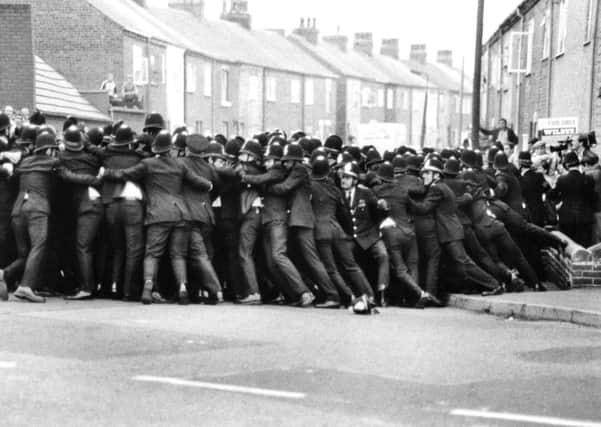Drought of the Century Reigns:The Week That Was: August 2 to 8, 1984


Yorkshire Water announced sweeping extensions of hosepipe restrictions in Yorkshire with immediate effect and confirmed that residents of Calderdale and Kirklees would be among the first to have to head into the street with buckets.
As soaring temperatures continued to deplete the region’s 150 reservoirs, nearly 2.5 million of YW’s 4.5 million customers were to be covered by a hosepipe ban by the weekend.
Advertisement
Hide AdAdvertisement
Hide AdSpeculation over the future of the miners’ strike was rife, as National Union of Mineworkers’ president Arthur Scargill headed into a meeting with the leaders of the UK’s eight biggest unions, including NUPE, SOGAT and the ACTT.
The two-hour meeting closed without any official statement. Further financial aid to miners was said to have been on the agenda, but it was understood that no agreement was reached on supportive industrial action for the strike, which had started with a walk-out at Cortonwood Colliery in South Yorkshire on March 6.
Meanwhile, director general of the Confederation of British Industry Sir Terence Beckett urged employers to beat the miners’ strike by saving energy. He said cutting consumption by up to 10 per cent would send a signal that industry could not be brought down by the stoppage.
A Surrey businessman who had accused the police of tapping his phone was celebrating after a ruling by the European Court of Human Rights. James Malone, a former antiques dealer, claimed that police intercepted his phone calls and post while he was on trial for handling stolen goods in 1977.
Advertisement
Hide AdAdvertisement
Hide AdMr Malone was acquitted of all charges, and tried to sue the Metropolitan Police – but the High Court said it had no jurisdiction in the matter. After a six-year campaign, the case was finally referred to the European courts in 1983, and a panel of 18 judges now ruled that the UK government had breached Mr Malone’s human rights.
Mr Malone said he was delighted but was not convinced that the practice of phone tapping would stop. He said: “I am very pleased but I think that all that will happen is that the police or the government will not be caught with their trousers down again. Any safeguard they bring in will just be to ensure that no one will catch them doing it.”
In 1985 the Interception of Communications Act was passed, allowing police and security services to tap phones or intercept paper mail, on warrant from the Home Secretary or Northern Ireland Secretary.
In foreign news, the main points of a deal giving Hong Kong a high degree of autonomy for 50 years after China took over the colony in 1997 were agreed. Foreign Secretary Sir Geoffrey Howe said the two countries were on course for an historic, legally binding agreement which would preserve Hong Kong’s capitalist economy and basic freedoms.
Advertisement
Hide AdAdvertisement
Hide AdDoctors, lawyers and other professional people were facing redundancy because artificial ‘super brains’ would take over from man by the year 2020, predicted electronics expert Sir Clive Sinclair. These ‘meta computers’ would cost no more than a family car and be widely available for use in the home.
No one who owned one of these machines would need to leave their home for education or to consult a doctor or lawyer, for example, as these functions would be fulfilled by the computer, Sir Clive told a conference of high-IQ organisation Mensa.